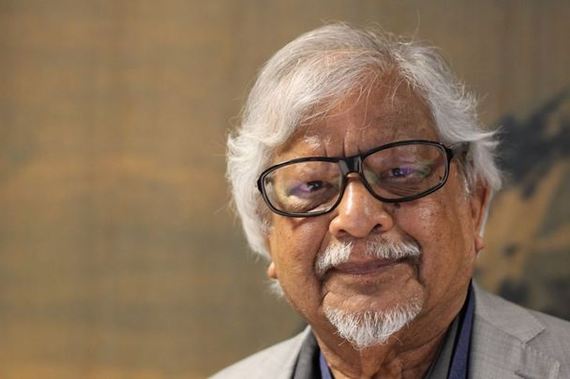By Visvajit Sriramrajan
A few months ago, I did not know much about human rights, but after attending the recent EF Global Student Leaders Summit in the Netherlands, I realized the scope of oppression around the world and that I, too, as a member of the rising youth community, could do something to help.
Near December of last year, my English teacher selected me to travel to The Hague for this exciting travel and educational opportunity. At that time, 'human rights' was nothing more than a concept to me. The term was peppered throughout the media, but never was I able to grasp that it was a topic prevalent enough to merit international conferences.
Of course, reports about murders, bombings, mass shootings and rapes ran on the news incessantly. Horrendous accounts of human trafficking and inhumane torture appeared frequently. Instances of refugees being denied both citizenship and amnesty, and having to smuggle their beloved children across borders as if they were contraband, were heartbreaking. However, trapped in an American bubble, I could easily dismiss these occurrences as yellow journalism. That was one of the biggest mistakes of my life.
In an unfamiliar auditorium with unfamiliar students, the tension around me was tangible. Nevertheless, there was something captivating about surrounding myself with young leaders from around the globe. A few months prior to the Summit, I applied to be an EF intern, and was speechless upon being told that I would deliver an off-the-cuff reflection after Arun Gandhi, grandson of Mohandas Gandhi. As a speaker, many thoughts ran through my mind. The sheer idea of speaking in front of a crowd of more than 1,300 students was terrifying. Moreover, speaking after the grandson of one of the most influential people in history, without any script, both exhilarated me and tensed me.
However, a moment later, Arun Manilal Gandhi was cordially welcomed onto the stage. Instantly, my fear dissipated and was replaced with intrigue. Thirty seconds through his speech, and it struck me that Arun Gandhi continues to fight for the same human rights that his grandfather marched for over a century ago. At that moment, 'human rights' began to mean something to me. The images the media disseminated became real, and the reflection I delivered turned out to be more genuine than I had ever imagined it would be.
In particular, Arun's grandfather, Mohandas Gandhi, fought against a horrendous caste system. Caste, in a nutshell, divides up the Indian public and determines their worth. This evaluation denies these common people basic human rights. It categorizes and segregates without any basis. Given my family's roots in India, the subject of caste resonated with me in particular. Articles about tacit discrimination taking place in India, from the metro ticket booth to the local tea stand, to even colleges and universities at the national level, baffled me. Such a significant issue was still rampant in the Republic of India, despite decades of combat to end it.
Freedom fighters and political activists, such as Mohandas Gandhi, crusade against injustice, but it is the responsibility of the people to maintain that justice. This is why Mohandas Gandhi's policies did not stand. Society continues to insinuate that flame of corruption and continues to favor those greedy for wealth over those who are kindhearted and grateful for what they have.
Arun Gandhi told us that society not only confronts an eternal, physical struggle, but also an internal, cognitive struggle. He reminded us that preventing a crime is a temporary ordeal. On the other hand, nurturing a mindset that is brilliant enough to avoid acts of crime before they happen will result in peace. This point spoke volumes to me, but it also perplexed me. Compromise seemed such a modest answer, but why then has it still not been fully implemented in places like India?
However, Arun Gandhi did not deem this mission impossible. In fact, he followed this mindset himself. Amongst his busy schedule, he accommodated time to attend this Summit and speak to the next generation of world leaders. There was a reason for that. He believes in young people.
Not only in India, but all over the world, it is our generation that will continue to overcome bigotry and xenophobia, segregation and discrimination, homophobia and transphobia, caste and reservation, crime and violence, and many more surges against peace that this planet sees. It is our generation that should make sure justice is served with non-violence.
Dr. Arun Gandhi shared his thoughts on human rights with the student attendees of the EF Global Student Leaders Summit in The Hague
Arun Gandhi acts as a reminder to us all that peace can only be achieved through peace, not through violence. We can achieve a state where sexual slavery is nonexistent, and refugees find welcoming homes. We can achieve a state where the color of one's skin, or sexual orientation, does not provoke violence, but instead, initiates peace through understanding.
We are millennials, and we can change the world. Scratch that, we will change the world.
Visvajit Sriramrajan is a high school junior from Andover, Massachusetts.
This post is part of a series produced by The Huffington Post and EF Educational Tours about the recent EF Global Student Leaders Summit, which explored human rights in the Netherlands. The Summit Series combines educational travel with a two-day leadership conference, and asks students to tackle global challenges in places where those challenges are notably present or well-addressed. To view all posts in the series, visit here.

